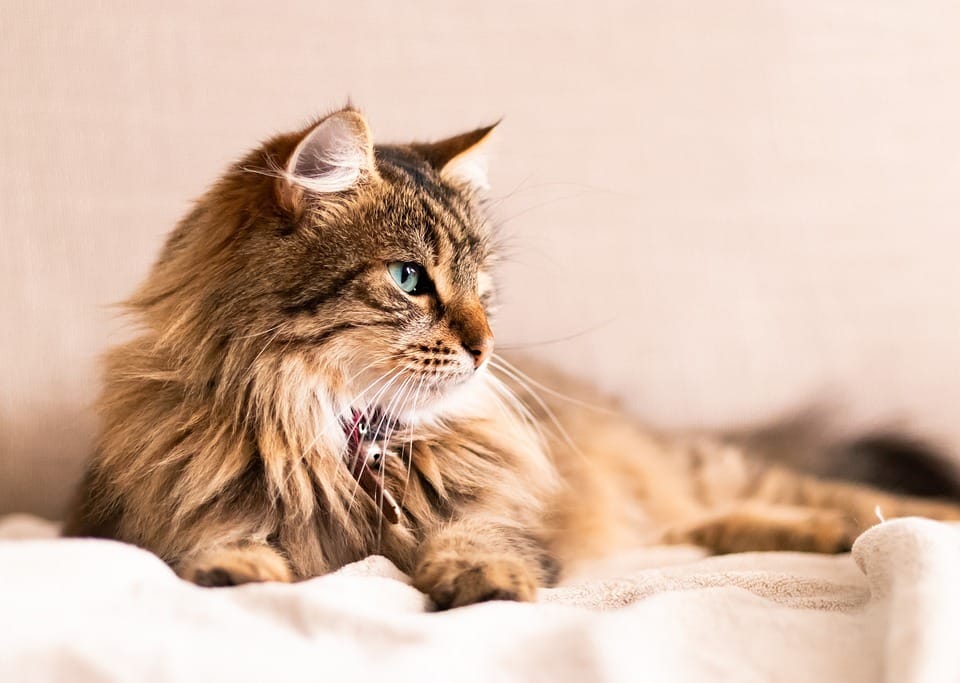- Your Pet's Wellbeing
- Posts
- What Is A Healthy Weight For My Cat?
What Is A Healthy Weight For My Cat?
When to See The Vet !
When it comes to your cat’s health, weight is one of the most important factors to watch. Obesity is a silent epidemic in cats, with many pet parents unaware that their feline companions are carrying excess weight. On the flip side, being underweight can also signal a problem for your cat. Therefore, what is a healthy weight for a cat?

We’ll dive into how to determine what a healthy weight is for your cat, how to evaluate your cat's body condition, and when to involve your vet if there is a problem.
What Is a Healthy Weight for a Cat?A healthy adult cat typically weighs between 8 to 10 pounds, but this can vary significantly depending on the breed and body frame. For example, a petite Siamese may be perfectly healthy at 6 pounds, while a large-boned Maine Coon might be lean at 15 pounds.
Instead of relying solely on a number on the scale, veterinarians often use a Body Condition Score (BCS) to assess whether a cat is underweight, overweight, or at an ideal weight. This 1-to-9 scale evaluates fat coverage over the ribs, waistline, and abdomen.
A BCS of 4 or 5 is considered ideal. You should be able to feel your cat’s ribs easily but not see them. From above, your cat should have a slight hourglass shape, and from the side, there should be a visible abdominal tuck just behind the ribs.
How to Tell If Your Cat Is Overweight?
If your cat is starting to look like a loaf of bread with no defined waistline, there’s a chance your kitty is overweight. Obese cats often have a rounded appearance, a sagging belly (sometimes called a “fat pad”), and difficulty grooming themselves, especially around the back end.
Signs that your cat may be overweight include:
If your cat has difficulty jumping onto furniture
Less interest in play
Trouble cleaning themselves properly
Has labored breathing after mild activity
Obesity can lead to a wide range of health issues, including diabetes, arthritis, heart disease, and even certain types of cancer. So even if your cat seems happy and well-fed, carrying extra pounds can silently impact their health and lifespan.
Signs Your Cat May Be Too Thin
On the other hand, if you can see your cat’s ribs or spine protruding, or if they’ve suddenly lost weight, it may be time for concern. Underweight cats can suffer from malnutrition, chronic illnesses, dental problems, or even stress and anxiety.
Some signs your cat may be too thin include:
Prominent bones (ribs, spine, or hips)
Lack of muscle mass
Dull coat or excessive shedding
Lethargy or weakness
If your cat’s weight has dropped unexpectedly or continues to decline, it's important to have your vet rule out underlying conditions like hyperthyroidism, kidney disease, or gastrointestinal issues.
Senior cats, particularly, tend to lose weight for some of the above conditions and it can happen suddenly.
What Causes Weight Gain in Cats?
Many indoor cats gain weight gradually over time. Without enough exercise and with free access to high-calorie food, it’s easy for cats to eat more than they need. Spaying and neutering can slightly lower a cat's metabolism, which also contributes to weight gain if calorie intake isn’t adjusted.
Of course, if you feed your cat too many treats or on a high-carbohydrate dry food, this can also lead to weight gain. Further, if you are feeding multiple cats in your home, without monitoring the portion size, this can also cause weight gain. And, of course, lack of exercise or movement can also cause you cat to gain weight.
How to Maintain a Healthy Weight for Your Cat
Maintaining your cat’s ideal weight involves a mix of portion control, regular physical activity, and routine veterinary checkups.
You can start by measuring your cat’s food accurately using a kitchen scale or measuring cup to make sure that you’re feeding the recommended amount. Try Incorporating daily play sessions, ideally twice a day, with toys like feather wands, laser pointers, or treat-dispensing puzzles helps keep your cat physically and mentally stimulated.
If your vet suggests it, consider switching to a weight management formula to support healthy weight loss or maintenance. Avoid free-feeding, especially if your cat tends to graze or overeat, as leaving food out all day can easily lead to excess calorie intake. Further, wet food is ideal for cats as it is high protein, water-packed and low carbohydrate. If you can incorporate that into your cats’ diet, that is helpful too.
Monitor your cat’s weight monthly, either at home or during vet visits, to catch any changes early. And if your cat does need to lose weight, do so gradually.
When to Talk to Your Vet
If you’re unsure whether your cat is at a healthy weight (either too thin or too heavy), schedule a wellness exam with your vet. Your vet can help you determine your cat’s BCS and create a personalized weight loss or weight gain plan if needed.
Regular checkups are also an important time to monitor any changes in your cat’s condition or appetite that might signal an underlying issue.